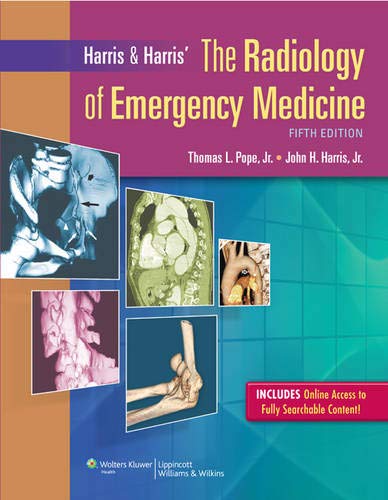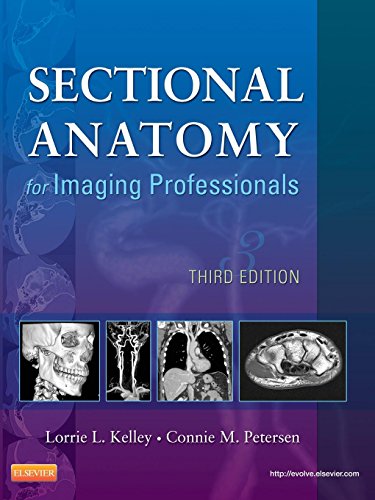(Part 2) Best radiologic & ultrasound technology books according to redditors
We found 64 Reddit comments discussing the best radiologic & ultrasound technology books. We ranked the 44 resulting products by number of redditors who mentioned them. Here are the products ranked 21-40. You can also go back to the previous section.




















Well, it depends on how hard you are willing to work,
Lazy and just want to kinda get used to terminology:
Learning Radiology by Herring
Willing to put in 2-3 hours every day during the rotation which by the way is entirely feasible since med students definitely aren't doing more than 40 hours a week, most do like 30 during a rads rotation. Use Core Radiology
Difficultish: Brant and helms, the harrisons of radiology. But unlike harrisons where legit everything is covered, if you really want to learn radiology you have to get subspecialty specific textbooks like the requisities series. That said, this is what I used back in the day during med school and I definitely don't regret it. I've read through core radiology as well, they are kinda similar in content, but B&H is a bit more formal and teaches radiologist principles better. If you are going into radiology, this is the textbook to buy since you'll probably use it in residency during PGY-2.
And in general, you are never going to read the entire textbooks during med school, but for IM or EM docs, Core could be super useful even though it will be beyond them for certain topics.
For physics, this is my favorite book by far. It can be a bit dense, and some in my opinion more ignorant radiologists who dislike extensive physics don't like it as much, but I learned during training physics makes the radiologist. Even among radiologists, too many doctors make basic physics mistakes that lead to misdiagnosis, especially with things like nuclear imaging. I frequently overread cardiologist and GI nuc imaging and am kind of appaled by the complete lack of basic radiation understanding. That said...
Here are the amazon links, you can probably find pdfs to some of the books and those that aren't you can probably find in your hospital library.
https://www.amazon.com/Learning-Radiology-Recognizing-Basics-3e/dp/0323328075/ref=sr_1_1?ie=UTF8&qid=1500633396&sr=8-1&keywords=radiology
https://www.amazon.com/Core-Radiology-Approach-Diagnostic-Imaging/dp/1107679680/ref=sr_1_2?ie=UTF8&qid=1500633396&sr=8-2&keywords=radiology
https://www.amazon.com/Fundamentals-Diagnostic-Radiology-Set-Brant/dp/1608319121/ref=sr_1_1?s=books&ie=UTF8&qid=1500633979&sr=1-1&keywords=brant+and+helms
Specifically for MRI:
https://www.amazon.com/Duke-Review-MRI-Principles-Case/dp/1455700843/ref=sr_1_1?s=books&ie=UTF8&qid=1500633869&sr=1-1&keywords=duke+MRI
^Great book for the basics of MRI artifacts and connects visual artifacts to the physics, although learning how to differentiate between artifact and pathology is going to take a residency ;). Also, make sure to get the online version because the paper edition is shit quality.
Yea, so all in all, everyone can find a book that will satisfy their level of interest in radiology, and of course, you get out what you put in. You put in a lot of time in the rotation, that is your decision and I think it was worth it. I learned more of my physics principles during my rotation(although it helped I was an engineer) than residency, so when it came time to take physics CORE, I didn't have to study. Physics CORE is basically the step 1 of radiology, the exam can be hard as shit, and unlike step 1, there is no UFAP or UWORLD lol.
Radiology textbook can be obscure in that they often don't explicitly mention physics principles, so if you don't them, you can't truly appreciate a textbook in my opinion, and how I studied radiology basically was I always had four textbooks open at any given time.
Robbins for pathophysiology, Whatever radiology textbook I was using, a copy of Netters, and maybe an embryology review book if I felt it was necessary. Never steered me wrong, radiology and anatomy textbooks open at all times are especially important, but try to keep the anatomy book and pathophys book closed while "interpreting" the textbook, only to re-correlated after you have thought about it and read a section to get a second more in depth look.
Costantly reminding yourself of principles is important and often missed. I am sure all of you know radiology is one of the most basic science heavy specialties, so reviewing your basic sciences, even well beyond medical school, makes for a fantastic radiologist.
However be careful not to get attached to any given textbook as well, you can't exactly have netters and robbins with you in the reading room.
Either Merrill's or Bontrager's Atlas - your department should have a copy somewhere.
Also helpful is Martensen's "Radiographic Image Analysis"
My preferred general textbook is "Textbook of Diagnostic Ultrasonography" by Hagen-Ansert, and for more detailed OB/Gyn ultrasound I love the "Ultrasonography in Obstetrics and Gynecology" by Callen.
https://www.amazon.com/Murray-Nadels-Textbook-Respiratory-Medicine/dp/1455733830
This is considered the standard.
I would also highly suggest looking this Webb and Higgins. Being able to read thoracic radiology is absolutely key to being a good pulmonologist
https://www.amazon.com/High-Resolution-CT-Lung-Richard-Webb/dp/0781769094/ref=sr_1_3?s=books&ie=UTF8&qid=1483465194&sr=1-3
Harris and Harris is a great textbook for Emergency Medicine.
I'm not sure something exactly like what you're asking for exists, but I've heard a lot of great things about Bontrager as a superior positioning aid compared to Merrill's. See if you can find a copy at your site or school to page through to see if it's sufficient for what you want.
Interesting. I've only been here a few months and only get exposed to a few specialties in depth so it's no surprise I didn't know about that book.
This book? http://www.amazon.com/Review-Radiologic-Physics-Walter-Huda/dp/0781785693/ref=dp_ob_title_bk
That's a LWW title, you're in luck.
This book has been a great help.
I agree with others' opinion that the CT registry encompasses a variety of topics, including physics, equipment, history, procedures, patient care etc. Granted, the registry changes and evolves it's questions every year, it seems that addressing anatomy is also a vital issue to cover in preparation for the registry. I used Sectional anatomy for imaging professionals as a reference for anatomy given it was available in my department. Surely, any variation of this type of material will get the job done as well.
There are also a couple of websites dedicated to CT topics and continuing education/training opportunities. CTisus is a great forum for relevant information, and a great place to post questions on just about anything CT related. Lastly, CTguru is similar to CTisus but in a smaller capacity. There are plenty of answered questions regarding the registry amongst the existing threads, and if I remember correctly you may even access sample/study questions on the different topics covered. Back when I took the registry, CTisus hosted over 200 questions on every single registry topic, which I actually still have in print laying around somewhere. I am not completely sure they still have all of them online, but the various forum threads on the subject still host a number of them.
Edit: Fixed Link
I started with this
https://www.amazon.com/Trauma-Mobile-Radiography-Michael-Drafke/dp/080360694X
and after 5 years of working in an extremely busy level 1 trauma i have developed my own tricks.
Its important that you realize that your shots are not going to look like something out of Merrill's, often you're going to have to settle for 'good enough'
Sorry for the late reply. Saw it during lunch break then completely forgot about it till now.
I'm not from America, so I really wouldn't know about securing a job over there. That really shouldn't worry you at all though; Doctors can find work anywhere in the world, in fact it's more of a question of convenience than anything else. If you can get a job on home soil, great! If you can't, you can always look for a job abroad.
However, if you're asking about securing a fellowship, then I've got three words for ye: connections, connections and... connections! I really can't stress enough on how important this is. Yes, your hard work in the next few years is important, but it's who you know that will land you where you want. A lot of big names in radiology (at least the ones I've met) point this out as one of the key factors in getting your desired fellowship. A good way to start cultivating connections is to attend some of the bigger annual conferences like the RSNA or training courses like the AIRP (or even European ones like the ESOR and ESR) and chatting up the speakers. Show your face often, let them know how interested you are.
As for residency advice, I've got another three words for that: exposure, exposure, exposure. Reading is important, but you'll need to see thousands of cases, per subspecialty, to build up your knowledge base. Reading theory without enough exposure is useless. So if your institution doesn't have a lot of cases in a certain sub, you can apply for a rotation elsewhere. Also, in regards to reading material, you might hear people throw titles like Dahnert, Sutton and Primer. My experience is that reading from a general radiology book -while good enough for basics- is generally a waste of time, and I've learned that the hard way. Go for specialized books right from the start, and take the case/rotation-based approach. You can't go wrong.
Oh. You MUST get Chapman's DDx. This shall henceforth be thy holy bible. Know it by heart by the end of the first residency year, even if most of the detailed theory is lost to you. Get the DDx down, theory will come in time.
I would love a copy of this and the sadock books.
Radiography Essentials for Limited Practice, 3e
This one? http://www.amazon.com/Clinical-Imaging-Differential-Diagnosis-Eisenberg/dp/0781788609
Well I'm a member of the BSIR (UK doctor), but if you're in the US you should join MIRS. These organisations are usually free to join for juniors and trainees, and if you entered their essay competitions or audit prizes you'd have an excellent foot-in-the-door.
Also, this book is a great place to start.
This one?
Excellent thank you for the advice and tips on test material!!
Yeah I keep abreast of the ARRT requirements and know that come 2016 they are requiring some education.. Not a problem though it gives me plenty of time and I may in fact take a class on Saturdays that will qualify anyway just in case.
Thanks again definitely hanging on to this advice :)
EDIT: I have this book unused for sectional anatomy.. bought it for the xray program which we never needed it for, lol. Look good to you?: http://www.amazon.com/Sectional-Anatomy-Imaging-Professionals-3e/dp/0323082602/ref=pd_sim_b_1?ie=UTF8&refRID=1KTJ3V0R3B4HP4PYXABW